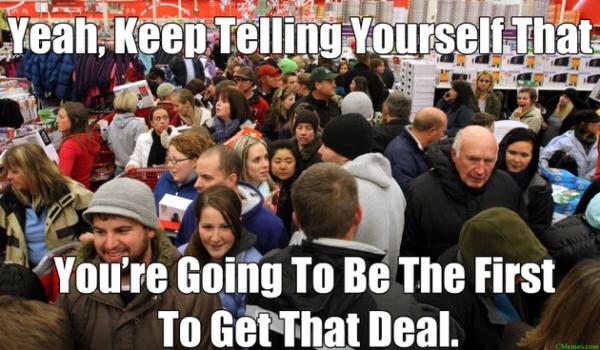The real value of advertising. Behavioral or not
Behavioral ads may be a fraud, but the real power of advertising is still there. Especially online.
Privacy violations, government surveillance, hate speech and other niceties embedded in current social networks were often justified with the “huge” value created for publishers and other businesses with behaviorally targeted advertising. In 2009, a study found advertisers were willing to pay 2.68 times more for a behaviorally targeted ad than one that wasn’t.

Now, a new study suggests publishers “only get about 4% more revenue for an ad impression that has a cookie enabled than for one that doesn’t.” As much as 60 cents for every dollar spent on behavioral ads would be “eaten up by middlemen’s fees”.
In other words, all the tracking, profiling and automated inference that are screwing our lives, from spouse-to-spouse advertising to consent made meaningless and hacked elections, are making publishers and other businesses much less money than they were promised, while making them targets of consumer and privacy rights watchdogs worldwide.
Could this “affect where publishers line up in brewing privacy battles”? You bet it could. I really hope publishers see the light soon, instead of keeping to line up for suicide as they did with the EU copyright directive. However, even if, as quoted in the article, behavioral targeting has been, indeed,
“completely overhyped in its value for publishers from the day it was first invented”
it is still worth to remember:
The REAL purpose and value of advertising

The real purpose, and value, of any advertising campaign is not to make you buy the specific product or service it promotes. That doesn’t matter. It just does not matter.
What matter is to always keep the total size of the “need to buy” bubble constant throughout society. Perfume commercials may not make you buy any perfumes, but it doesn’t matter.
What all commercials actually advertise is the bedrock concept that shopping makes you happy. The belief that you can feel better by buying something, anything. That shopping is your duty of good citizen. If perfume commercials make you buy a bathing suit you did not need, it is the bathing suit seller that will buy some perfume, eventually. Mission accomplished, GDP increased.
Advertising keeps you hooked to the idea that your needs are functions of what other people have. From this point of view, social networks are great because they must keep constant, in order to profit, the need of instant gratification, be it with “Likes” or shopping.
In case you’re interested, here’s a little proposal of mine to replace behavioral advertising with microformats.
Who writes this, why, and how to help
I am Marco Fioretti, tech writer and aspiring polymath doing human-digital research and popularization.
I do it because YOUR civil rights and the quality of YOUR life depend every year more on how software is used AROUND you.
To this end, I have already shared more than a million words on this blog, without any paywall or user tracking, and am sharing the next million through a newsletter, also without any paywall.
The more direct support I get, the more I can continue to inform for free parents, teachers, decision makers, and everybody else who should know more stuff like this. You can support me with paid subscriptions to my newsletter, donations via PayPal (mfioretti@nexaima.net) or LiberaPay, or in any of the other ways listed here.THANKS for your support!